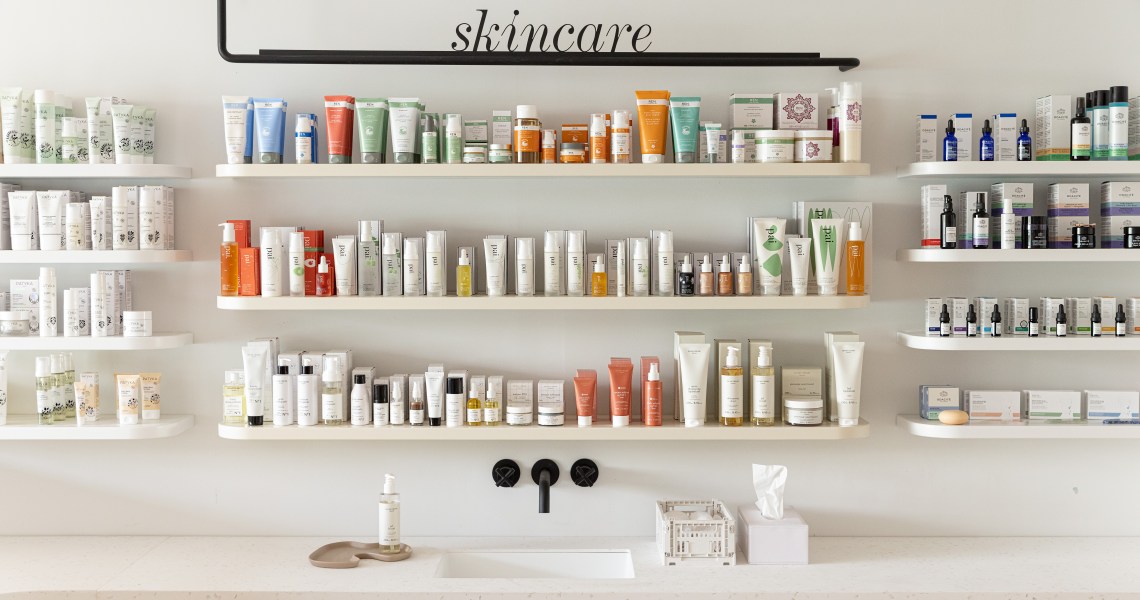Sephora is not the only international retailer setting its sights on the U.K. Oh My Cream, the 10-year-old French beauty concept store that has 22 locations in France, opened its first store in Notting Hill, London, as well as a dedicated U.K. e-commerce site, on Sunday. A second boutique will open in Chelsea in November, as part of a larger expansion into the country. Pre-pandemic, Oh My Cream saw $12.6 million in annual revenue, with a 30% growth over the last two years.
With a focus on in-store experts and an elevated IRL experience, Oh My Cream is hoping to attract clean beauty fans starved for these features. “When we thought about our international expansion, the U.K. was an obvious choice,” said Juliette Levy, CEO of Oh My Cream. “We are very pragmatic. The U.K. is close, we all speak English, the Eurostar is super quick. Even with Brexit and the attached difficulties, it didn’t seem like a totally unfeasible choice, especially compared to the U.S. or Asia.”
At a time when it’s crucial for the in-store experience to add value, the skin-care treatments offered by Oh My Cream are only one piece of the pie. The real value lies in the in-store expertise being offered. “In department stores, there’s a lot of traffic and staff turnover, and they [often] don’t provide proper training. It costs a lot of money and time to train people well,” said Levy. “Store customers tell us we have great clean, niche products [and] cool, modern shops. But it’s the people in our stores that are amazing.”
In France, Oh My Cream has grown a following of clean beauty fans over the last 10 years. Customers can get personalized skin-care routines from trained experts and buy products from brands like Tata Harper, Antipodes and Pai Skincare. “Oh My Cream has a clean, holistic approach, and our intimate stores [allow for] one-on-one relationships with our beauty advisors,” said Levy. She added that, for a while, 20% of shoppers who bought their first Oh My Cream product online during Covid replenished it in-store. Now, that’s jumped to 50%.
Beauty consumers in the U.K. still buy online, but most prefer buying in-store. A 2022 study by market research company YouGov shows that 14% of Great Britain consumers prefer to shop for their health and beauty products online, while 20% do it mostly in-store.
The local online beauty landscape has undergone great change. One of the U.K.’s online beauty leaders, Cult Beauty, changed hands in 2021; it was bought by The Hut Group, and its co-founder, Alexia Inge, has since left the company. Since, more of its staff have left and its brand partners have been paid late, according to The Sunday Times. At the same time, new beauty sources have emerged. For example, fashion retailer Browns debuted a beauty offering this year, in partnership with Farfetch.
Unlike the U.S. where Ulta Beauty and Sephora are clear retail leaders; the U.K. does not have a dominating player and suffers from a fragmented beauty landscape. The current thought leaders are Boots, which revamped its in-store assortment with buzzy brands like Fenty Beauty and redesigned its stores in 2021. And department store Selfridges is a popular beauty source. Recently, Chriselle Lim’s brand Phlur, which has a stateside presence in Sephora, launched at Selfridges.
Ad position: web_incontent_pos1
Oh My Cream hopes to become a leader in U.K. beauty, as does Sephora, which left the U.K. 17 years ago and relaunched online on October 17. Its first dedicated store in the U.K. will be unveiled in Spring 2023. As Sephora bought U.K. e-commerce beauty retailer Feelunique in September 2021 for $147 million, Feelunique will transition to a Sephora-branded experience on Monday, keeping its existing base of 1.3 million active users and its rewards program. Oh My Cream plans for 10 to 15 stores in London in the long run.
According to Rohini Wahi, retail and business insights strategist at WGSN, 2022 has been a phenomenal period for new store openings globally, with the lipstick index holding strong. “Despite end-of-year concerns for the economy and an uncertain holiday period ahead, the return of domestic and international holidays has the strong potential to benefit fashion and beauty.”
But currently, U.K. brands and consumers are in an especially difficult situation, amid a cost-of-living crisis and a recession affecting customer discretionary spending.
“This is a time for retailers to be people-focused, think long-term and build brand loyalty,” said Wahi. “Brands and new stores need to double down on customer service, ensure staff is fully prepped when that customer walks through the door and willing to go the extra mile for stressed consumers, via speedy refunds and no quibble guarantees.”
She added, “Right now, when people are considering where they spend the extra money, [excellent] customer service is paramount.”
Ad position: web_incontent_pos2
This will be especially important during the holidays, as beauty is the only sector where sales volumes are predicted to rise, by 0.2%, according to Retail Week’s Christmas Forecast.




